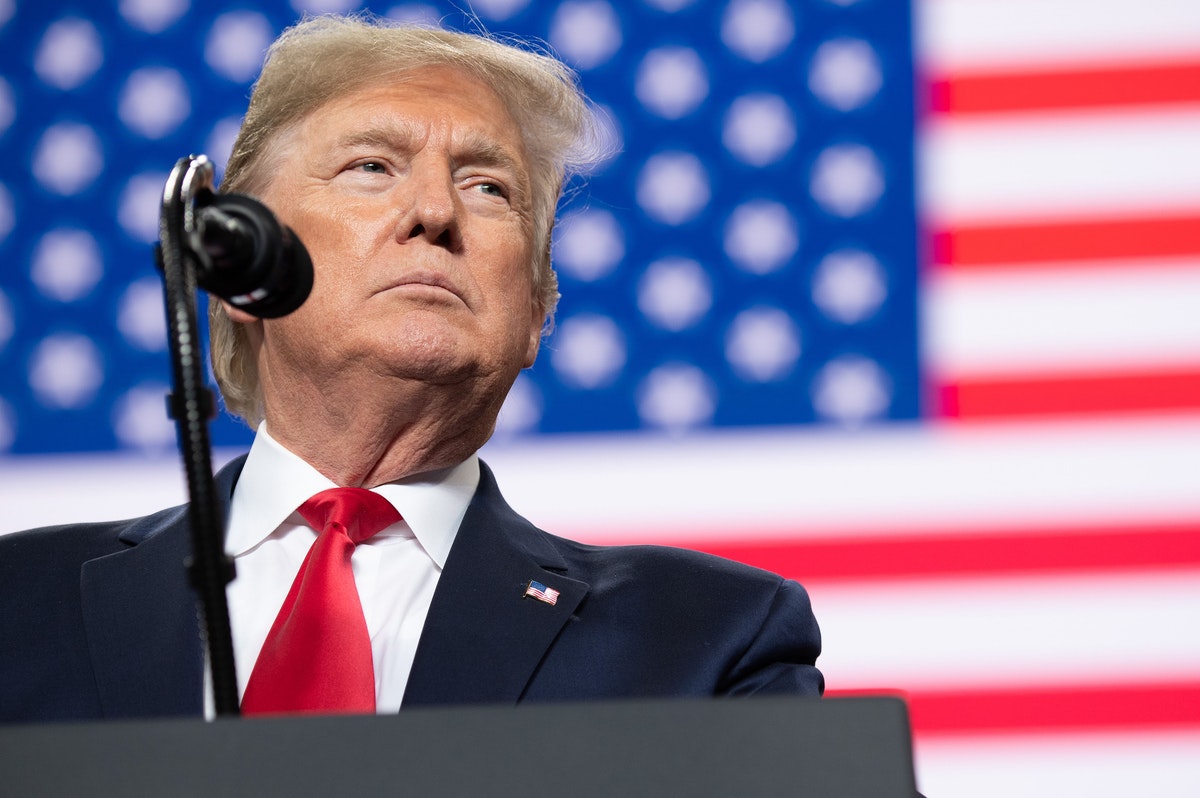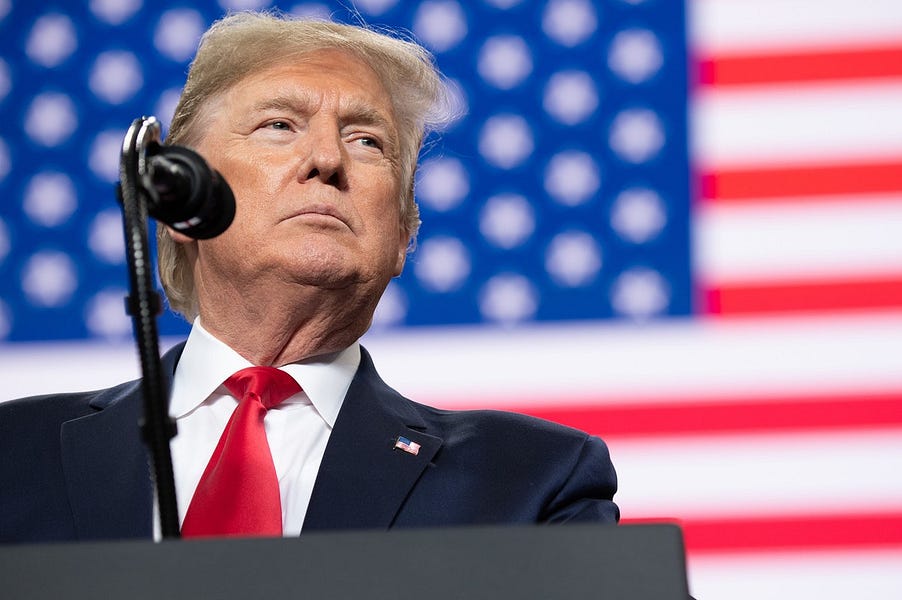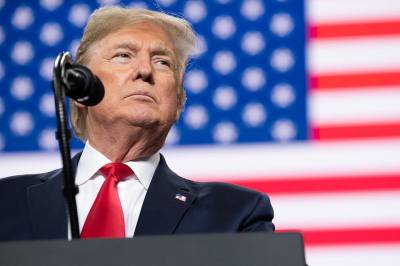Happy Wednesday! If Atlanta Braves pitcher Charlie Morton can throw a perfect inning in Game 1 of the World Series on a broken leg, you can make it through today.
Quick Hits: Today’s Top Stories
Following Monday’s military coup in Sudan, Sudanese Gen. Abdel Fattah al-Burhan said Tuesday that Prime Minister Abdalla Hamdok is safe and will be returned to his home “today or tomorrow.” al-Burhan defended the military’s actions as necessary to stave off a civil war and vowed to gradually restore internet access across the country. National Security Adviser Jake Sullivan said yesterday the Biden administration has been working with regional leaders to push the Sudanese military to cease any violence against civilians, release any detainees, and “get back on a democratic path.”
Under Secretary of Defense for Policy Colin Kahl told the Senate Armed Services Committee on Tuesday that Pentagon officials believe ISIS-K could be capable of carrying out attacks on U.S. soil in the next six to 12 months. al-Qaeda, Kahl claimed, is “a year or two” away from regaining such capabilities.
The Associated Press reported Monday that U.S. officials believe Iran was behind last week’s drone strike on an American military outpost in Syria. The attack did not result in any reported injuries or deaths, but the officials said the drones used were Iranian and that Iran “appears to have facilitated their use.” Pentagon spokesperson John Kirby declined to provide attribution for the attack in a press briefing Monday, but he noted it was similar in nature to previous strikes from Shia militia groups.
President Joe Biden on Tuesday announced his intent to nominate acting Federal Communications Commission Chair Jessica Rosenworcel to lead the agency on a permanent basis. He also named Public Knowledge co-founder Gigi Sohn to serve as the third Democratic commissioner on the FCC’s five-member commission.
A Food and Drug Administration advisory panel voted unanimously on Tuesday to back the Pfizer-BioNTech COVID-19 vaccine for children ages 5 to 11. The reduced dosage vaccine could be formally authorized by the FDA and Centers for Disease Control as early as this week.
Executive Privilege Throwdown

On Monday night—for the second time in about as many weeks—the Biden administration rejected an attempt by former President Donald Trump to withhold documents from congressional investigators probing the January 6 attack on the Capitol.
“President Biden has determined that an assertion of executive privilege is not in the best interests of the United States, and therefore is not justified,” White House Counsel Dana Remus wrote in a letter to National Archivist David Ferriero, instructing him to provide the relevant materials to the January 6 Select Committee in about a month barring an intervening court order. In a briefing earlier this month, press secretary Jen Psaki said the administration will “evaluate questions of privilege on a case-by-case basis,” but it has thus far primarily sided against its predecessor.
The entire situation is rather unusual—and Remus acknowledged that in an earlier letter justifying Biden’s position. “The insurrection that took place on January 6, and the extraordinary events surrounding it, must be subject to a full accounting to ensure nothing similar ever happens again,” she wrote. “Constitutional protections of executive privilege should not be used to shield, from Congress or the public, information that reflects a clear and apparent effort to subvert the Constitution itself.”
Lawmakers are seeking pretty much any information—call logs, schedules, notes—that could shed light on Trump and his advisers’ actions on January 6, as well as any communication they may have had with pro-Trump rally organizers ahead of the riot. The committee says it has already secured “thousands of pages of documents” from various tech and social media companies, but the National Archives is in possession of arguably the most sensitive and revealing presidential materials.
In an effort to keep such information out of Congress’ hands, Trump filed a lawsuit against both the National Archivist and the committee after Biden first declined to assert executive privilege on his behalf—a move the former president chastised in the suit as a “political ploy.”
“This self-described ‘sweeping’ request is almost limitless in scope and effectively seeks every presidential record and communication that could tenuously relate to events that occurred on January 6, 2021,” the lawsuit reads. “The Committee’s request amounts to nothing less than a vexatious, illegal fishing expedition openly endorsed by Biden and designed to unconstitutionally investigate President Trump and his administration.”
In assessing whether Trump’s claims have any merit, it’s worth diving into the history of executive privilege, which—as Sarah and David explained on a recent episode of Advisory Opinions—facilitates presidents’ ability to receive candid counsel from their advisers without the threat of those conversations becoming public. That privilege, however, is not clearly defined and wanes over time—and doesn’t apply uniformly to advisers, former advisers, and documents. The Presidential Records Act of 1978, for example, established that presidential documents immediately transfer into the legal custody of the Archivist upon a president leaving office and become accessible to the public—with only a handful of restrictions—five years after the end of an administration.
The concept of executive privilege dates back to George Washington, but it was first legally recognized by the Supreme Court following Richard Nixon’s presidency. In the 1977 case Nixon v. Administrator of General Services, the court rejected the disgraced president’s claim to “absolute, unqualified presidential privilege of immunity” and ruled that he could not prevent the government from collecting or releasing recordings of his conversations with White House aides. The decision did, however, recognize the authority of former presidents asserting executive privilege in some instances, essentially creating a balancing test for future cases. In that one, the court determined the government’s need for the tapes outweighed Nixon’s interest in confidentiality.
Michael Stern—former senior counsel to the U.S. House of Representatives—sees a similar situation playing out here. “The court will have to address a number of different issues, I think where it comes out very likely will be in favor of the [January 6] Committee,” he told The Dispatch, adding that a judge will likely determine the need for information outweighs Trump’s privilege claims. “The question is, how long will it take?”
Absent court intervention, the Archivist is set to begin releasing materials to the committee on November 12. But U.S. District Court Judge Tanya Chutkan recently agreed to an expedited hearing on Trump’s lawsuit, with oral arguments set to begin on November 4. The court could grant the former president a stay, at least temporarily blocking the documents’ release.
“There are a lot of complicated legal issues and this is going to set a precedent,” Stern said. “Even though the committee has a need for the documents, I think that [Trump’s request] will probably get some deference. It’s hard to see this being resolved without at least a few months of litigation.”
Other legal experts see the situation as more cut and dried. “There’s only one president of the United States at a time,” W. Neil Eggleston, White House counsel under former President Barack Obama, told The Dispatch, arguing a former president shouldn’t have the ability to assert privilege at all. “If the incumbent president makes a determination that ... records are not covered by executive privilege or the congressional need for the document outweighs the confidentiality, that’s a decision the president gets to make.”
“[Even if] in the abstract, President Trump can assert privilege,” Eggleston continued, “privilege only applies to executive functions.” Trump’s post-election actions attempting to remain in office, he argued, were not a function of his presidential duties, but his electoral ones.
If you take the members of the January 6 Committee at their word, this fight isn’t going away anytime soon—and is likely to escalate further. Days after the House voted 229-202 to hold former Trump adviser Steve Bannon in contempt of Congress for refusing to comply with the committee’s subpoena, Chair Bennie Thompson told the Washington Post he plans to subpoena John Eastman, the pro-Trump legal scholar whose memo on overturning the election results served as the basis for the former president’s ideations.
As for Trump himself, Thompson on Sunday hinted at what the committee has in store: “Nobody is off limits.”
Worth Your Time
In a piece for National Review from 2019, David Bahnsen argues that taxing unrealized capital gains—which Democrats are now proposing as a potential funding source for Biden’s agenda—is a “nutty” idea. “How in the world is illiquid real estate that has not sold supposed to be ‘valued’ each and every year, let alone illiquid businesses, private debt, venture capital, and the wide array of capital assets that make up our nation’s economy but do not fit in the cozy box of ‘mutual funds’?” he asks. “There is a reason why we tax realized gains in our society—and not theoretical gains. Because one is actually a gain, and the other is theoretical. We do not tax theoretical income—money your employer might pay you; we tax money you receive. And a capital gain is not a capital gain until it is sold as such, and that is true because of the meaning of the word ‘gain.’ Yes, one could have a real and definable increase in the value of an investment, but values go up and down, and correlating our tax receipts to the volatility of asset prices is inherently destabilizing, logistically farcical, and ethically unforgivable.” Plus, as Ira Stoll points out in a piece for Reason, “the constitutional challenges that such a plan would face are considerable.”
Census Bureau data released last week found that college enrollment in the United States declined slightly from 2020 to 2021, but financial journalist Justin Fox doesn’t necessarily think this is bad news for young people. “Employers struggling to lure back experienced workers are more willing than they’ve been in a long time to hire straight out of high school, sometimes offering $20-plus hourly wages and attractive benefits,” he writes in his latest Bloomberg column. “[There’s] evidence that delaying college has in the past resulted in lower earnings over the long run. This time around, though, lots of companies are offering to help pay for college as an enticement for would-be workers, which should make it easier for young adults to keep their options open. College tuition is also rising at a rate lower than overall inflation for the first time since the early 1980s, reducing the costs of delay. And if today’s worker shortages help more employers figure out that being biased against hiring non-college-graduates is costing them money, the economic cost of forgoing college could fall.”
Helen Lewis—author of a book about the history of feminism—is not going to start using far-left activists’ new ‘pregnant person’ terminology. “The same progressives who push for pregnant people have no problem saying ‘Black Lives Matter’—and in fact decry the right-wing rejoinder that ‘all lives matter,’” she notes in an essay for The Atlantic. “Yet, hopefully, all lives do matter—and about half of the people shot by U.S. police are white. So why insist on Black? Because the phrase is designed to highlight police racism, as well as the disproportionate killing of Black men in particular. Making the slogan more ‘inclusive’ also makes it useless for political campaigning. Pregnant people does the same.”
Presented Without Comment
Also Presented Without Comment
Toeing the Company Line
You don’t want to miss Tuesday’s all-Virginia edition of The Sweep. Sarah broke down early voting trends and Terry McAuliffe’s potential struggles with the female vote, Audrey spoke to voters at last week’s McAuliffe rally with Vice President Kamala Harris, and Chris Stirewalt predicted what a close result would augur for the Democratic Party. “Some Democrats will argue that even a very narrow victory by McAuliffe in Virginia is evidence that the party has to make a better case on bread-and-butter issues like ending the pandemic, bolstering the economy, fighting crime, and improving education,” he writes. “That argument will hold that the issues that excite progressive activists—climate change, income inequality, and social justice—are too esoteric and divisive. Other Democrats will say that it is a lack of action on those very same issues that diminished turnout among key parts of the electorate.”
On yesterday’s Advisory Opinions, David and Sarah preview the upcoming Supreme Court oral arguments regarding Texas’ new abortion law before turning to a wild case involving the videotaping of police. Plus: Liberty University’s problems with sexual assault and an important free speech case.
In Tuesday’s French Press (🔒), David wades into the debate driving the Virginia gubernatorial race: Who really runs public education? Teachers, parents, or neither? The in loco parentis concept of education dominant in the U.S. leaves the education of children to trained professionals and minimizes the voice of parents. “Parents don’t really have a right to change that reality,” he notes. “Parents don’t decide who runs schools. Voters do. Not all voters are parents, and not all parents are voters. But it is voters who elect school boards and the state legislatures and governors who exercise most of the ultimate authority over public schools.”
Acclaimed psychologist Paul Bloom joined The Remnant yesterday for a conversation with Jonah about his new book, The Sweet Spot. Why do humans often deliberately seek out things that cause us pain or discomfort, like horror movies and spicy foods? What does it really mean to be happy? And could video games and virtual reality destroy the world as we know it?
Let Us Know
Which principle do you believe is more important when it comes to the presidency and executive privilege, discretion or transparency? How would your ability to do your job be impeded if you knew that any documents or written communications could become public?
Reporting by Declan Garvey (@declanpgarvey), Andrew Egger (@EggerDC), Charlotte Lawson (@lawsonreports), Audrey Fahlberg (@AudreyFahlberg), Ryan Brown (@RyanP_Brown), Harvest Prude (@HarvestPrude), and Steve Hayes (@stephenfhayes).







Please note that we at The Dispatch hold ourselves, our work, and our commenters to a higher standard than other places on the internet. We welcome comments that foster genuine debate or discussion—including comments critical of us or our work—but responses that include ad hominem attacks on fellow Dispatch members or are intended to stoke fear and anger may be moderated.
With your membership, you only have the ability to comment on The Morning Dispatch articles. Consider upgrading to join the conversation everywhere.